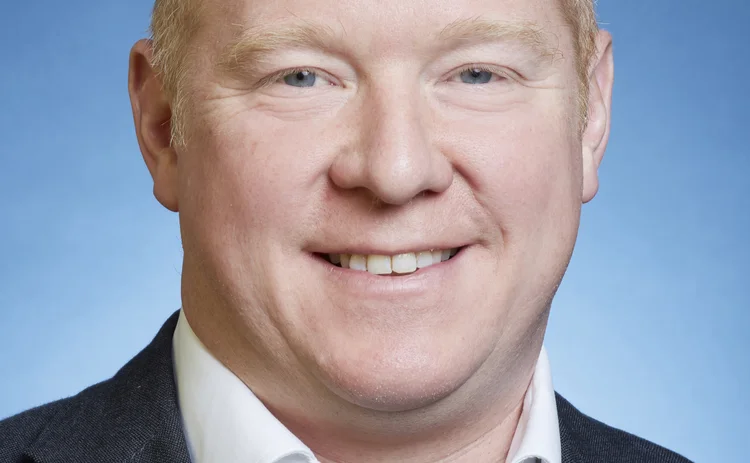
AWARDS Deutsche Bank scoops four awards

In the past, execution and the need to obtain the best price tended to trump all other considerations as the buy side diversified its counterparty list, accessed an ever larger number of liquidity pools and interacted with them in increasingly complex ways.
Consequently, the rise of aggregation, non-bank market-makers and alternative venues has made foreign exchange one of the most competitive marketplaces on Earth, with little difference between the prices provided by the third or 12th market-maker on a multi-dealer venue.
“Market-makers have spent years optimising their execution. It has all been about best price, price provision and distribution,” says Jonathan Tinker, co-head of FX at Deutsche Bank.
Deutsche Bank has won four titles at the 2017 FX Week Best Banks Awards, securing first place in the categories of Best Bank for the Eurozone, Best Bank for EUR/GBP, Best Bank for EUR/JPY and Best Bank for EUR/USD.
In 2017, however, buy-side market participants have started to deploy execution analytics and transaction cost analysis to evaluate the impact of trading decisions, which is beginning to influence the way they choose to execute their transactions and, more importantly, with whom.
Obsession called best price
Earlier this year, Roel Oomen, global co-head of electronic FX spot trading at Deutsche Bank, authored a hypothetical research paper called Execution in an aggregator, in which he argued that increasing the number of liquidity providers in an aggregated environment could have a negative impact on execution quality.
Oomen’s paper centred on the information leakage and subsequent market impact that clients can experience if they trade with liquidity providers who hedge out trades immediately.
This is on top of the winner’s curse that market-makers must combat if there are excessive numbers of LPs competing for business in aggregation. In such a scenario, competition becomes so intense that the market-maker winning the trade shows an overly aggressive price, essentially mispricing the risk.
“We think there is a nascent trend of clients moving away from simply chasing the best price. We have seen a number of clients returning to single-dealer venues because of the increased functionality and workflow efficiencies they can offer,” Tinker says. “We are at an inflexion point where customers are starting to realise best price is not everything.”
We specialise in providing products to clients they actually need. Our strategy is to provide a materially better service where others cannot meet the speed and/or price demands of the client base
Jonathan Tinker, Deutsche Bank
Clients also want easier access to a wider range of products, markets and services in the one place. “There comes a point where a single-dealer platform with greater breadth becomes a more appealing proposition than narrow, multi-dealer platforms,” he says.
The second Markets in Financial Instruments Directive has certainly contributed to the rise in execution analysis and use of transaction cost analysis tools as market participants attempt to comply with best execution requirements.
But Tinker believes that ultimately, it’s not best execution and regulation that will drive behaviour, but rather availability, overall cost, service and innovation. He notes some clients have become competitors in price provision in recent years, while the resurgence of appetite for FX from banks this year has done little to lessen the race to have the best price in the most commoditised products.
“I don’t think the market realises that trying to be best at providing prices in vanilla products may just not matter in the future, because market-makers will offer an equivalent execution service,” Tinker says.
Is price important?
In other words, the majority of customers will consider the ever-decreasing differences in price as increasingly immaterial.
Instead, Deutsche Bank aims to be an FX supermarket offering all the basics, but also products not available elsewhere. “We specialise in providing products to clients they actually need. Our strategy is to provide a materially better service where others cannot meet the speed and/or price demands of the client base,” he says.
Such areas include offering more exotic products to hedge funds, investing in Deutsche Bank’s electronic structured derivatives platform, AOS, and developing products aimed at workflow automation, such as Maestro.
Maestro, a completely new initiative, has been developed with corporate treasuries and real-money clients in mind, offering an execution-agnostic way to automate workflow according to pre-set rules.
“Foreign exchange remains a core business for Deutsche Bank and it means a lot to us to be voted the winner in four categories,” Tinker says.
The bank is continuing to invest in its strong Americas and Asia-Pacific franchises. “Deutsche Bank has more presence in Europe than anyone else and we have a proud heritage to protect,” he adds.
Only users who have a paid subscription or are part of a corporate subscription are able to print or copy content.
To access these options, along with all other subscription benefits, please contact customer services - www.fx-markets.com/static/contact-us, or view our subscription options here: https://subscriptions.fx-markets.com/subscribe
You are currently unable to print this content. Please contact customer services - www.fx-markets.com/static/contact-us to find out more.
You are currently unable to copy this content. Please contact info@fx-markets.com to find out more.
Copyright Infopro Digital Limited. All rights reserved.
You may share this content using our article tools. Printing this content is for the sole use of the Authorised User (named subscriber), as outlined in our terms and conditions - https://www.infopro-insight.com/terms-conditions/insight-subscriptions/
If you would like to purchase additional rights please email info@fx-markets.com
Copyright Infopro Digital Limited. All rights reserved.
You may share this content using our article tools. Copying this content is for the sole use of the Authorised User (named subscriber), as outlined in our terms and conditions - https://www.infopro-insight.com/terms-conditions/insight-subscriptions/
If you would like to purchase additional rights please email info@fx-markets.com
More on Awards
Asia FX Awards 2024: The winners
The FX Markets Asia FX Awards present 43 categories, determined by an esteemed judging panel comprising industry experts and FX professionals across Apac. They have paid attention to firms that brought unique and innovative ways to fulfil industry needs…
Best blockchain technology service provider: Talos
By building a robust ecosystem with a blueprint based on traditional asset classes, Talos has attracted a network of the most important institutional players to its digital asset trading platform
HSBC wins six Apac FX house of the year awards
With one of the strongest footprints in the Asia-Pacific region (Apac), HSBC provides international clients with an extensive local FX franchise while facilitating local clients’ access to international markets
Best FX prime broker and Best compression/optimisation service for FX: HSBC
With one of the largest FX networks worldwide – and strong coverage in Asia and other emerging markets – HSBC’s FX prime brokerage remains a strategic partner to key financial institutions
Best aggregator and Best FX analytics provider: oneZero
oneZero continues its rapid growth as FX brokers, banks and non-banks in Asia and beyond benefit from the advanced features its multi-asset trading and analytics technology provide
Firms seek optimisation gains as UMR and SA-CCR bite
A wider range of market participants is taking advantage of service providers such as OSTTRA’s optimisation cycles to drive margin and counterparty credit risk efficiencies across asset classes including FX, rates, equities, commodities and credit
Best FX overlay manager: State Street
In the most challenging market environment in many years, demand for State Street’s currency management offering spiked in 2022 as market participants sought assistance in minimising their FX risk and optimising their hedging activities
Best settlement initiative: CLS
Created 20 years ago to mitigate FX settlement risk, CLS continues to lead the settlement sphere with new solutions designed to meet the challenges of an ever-evolving FX market







